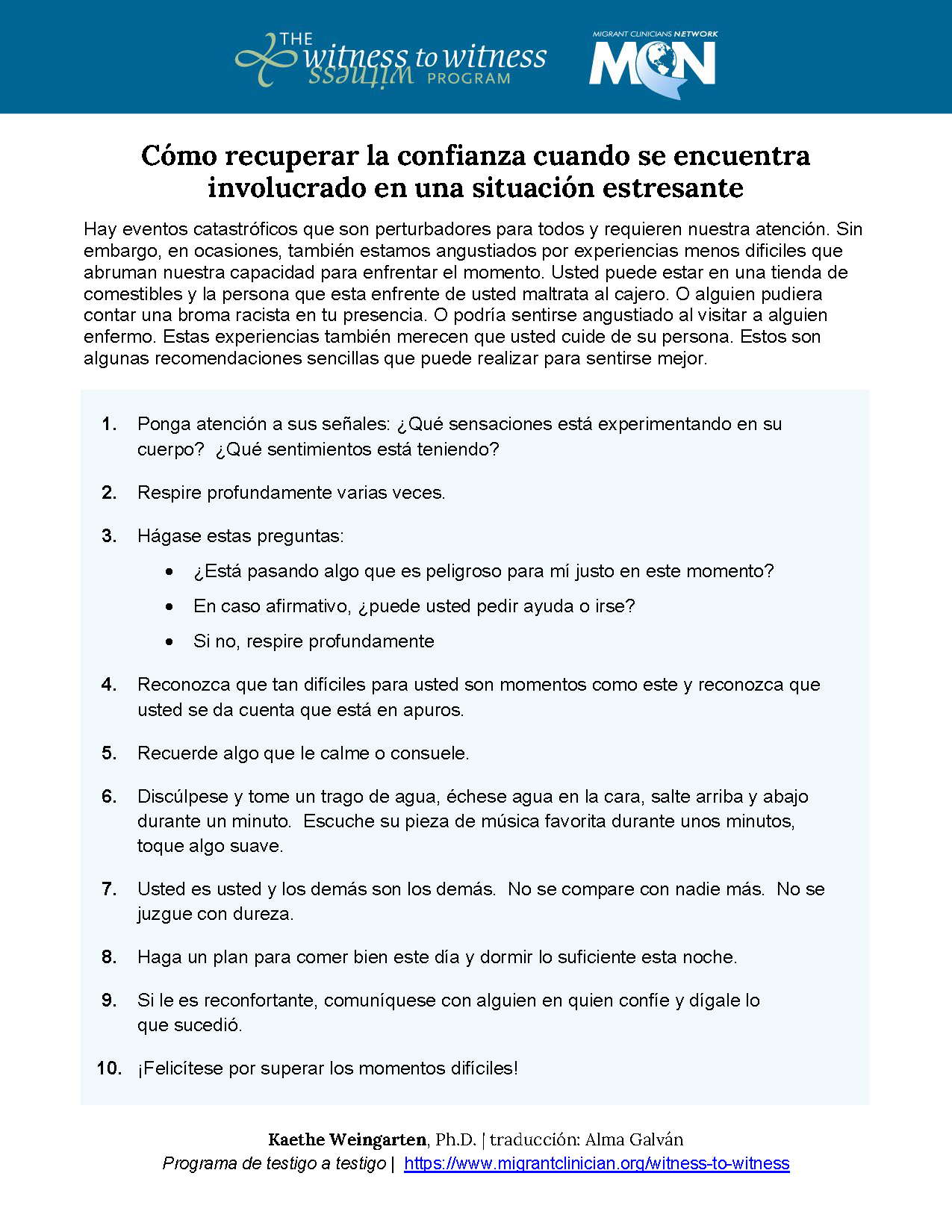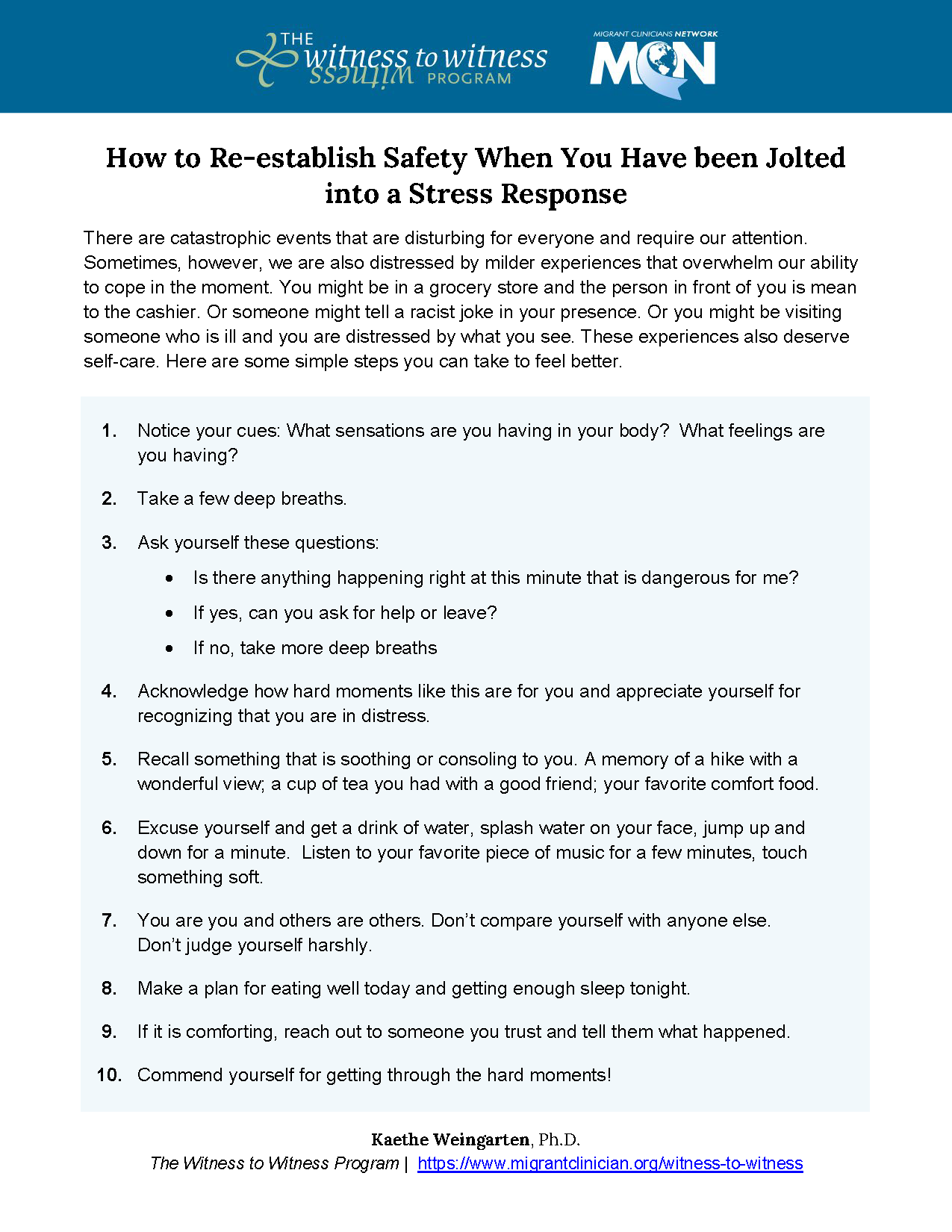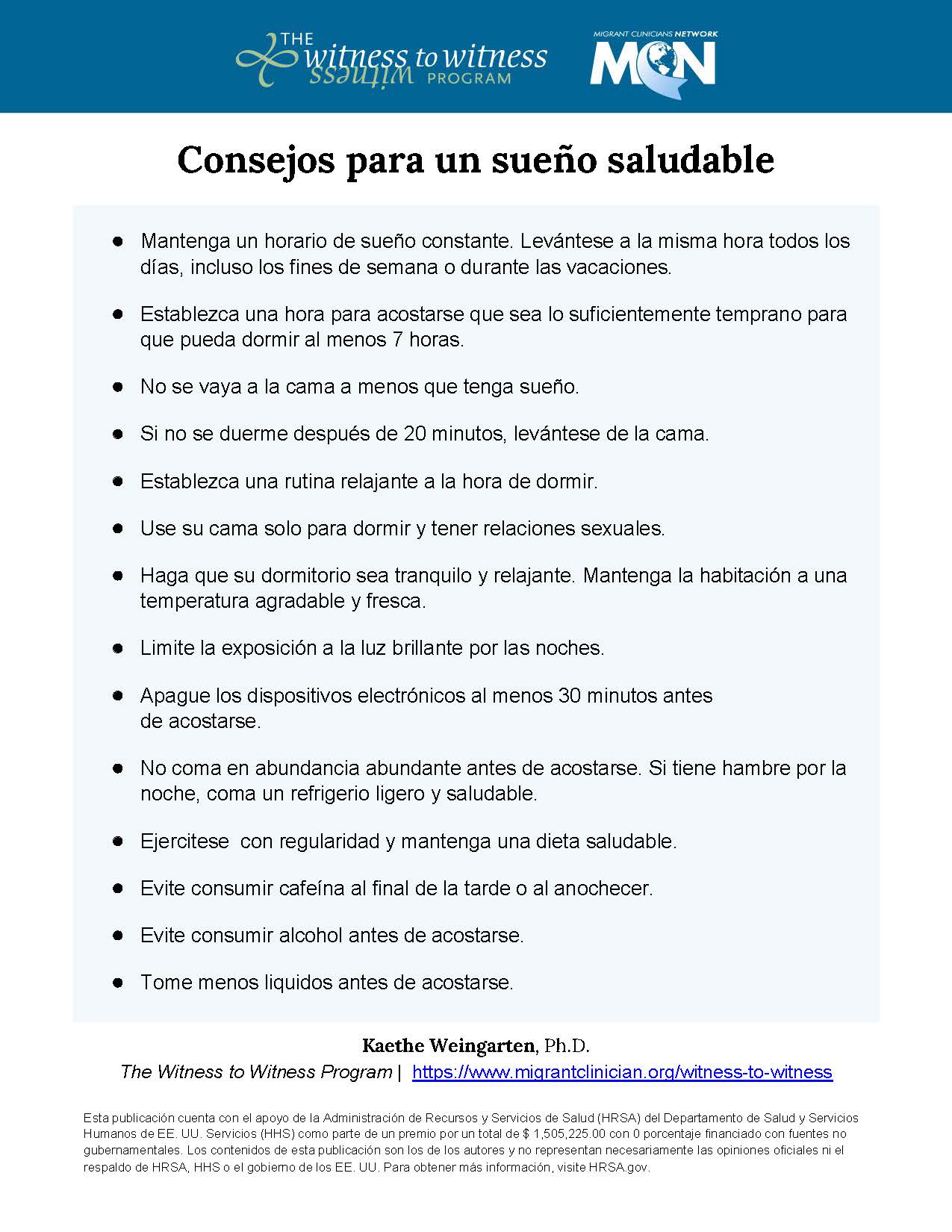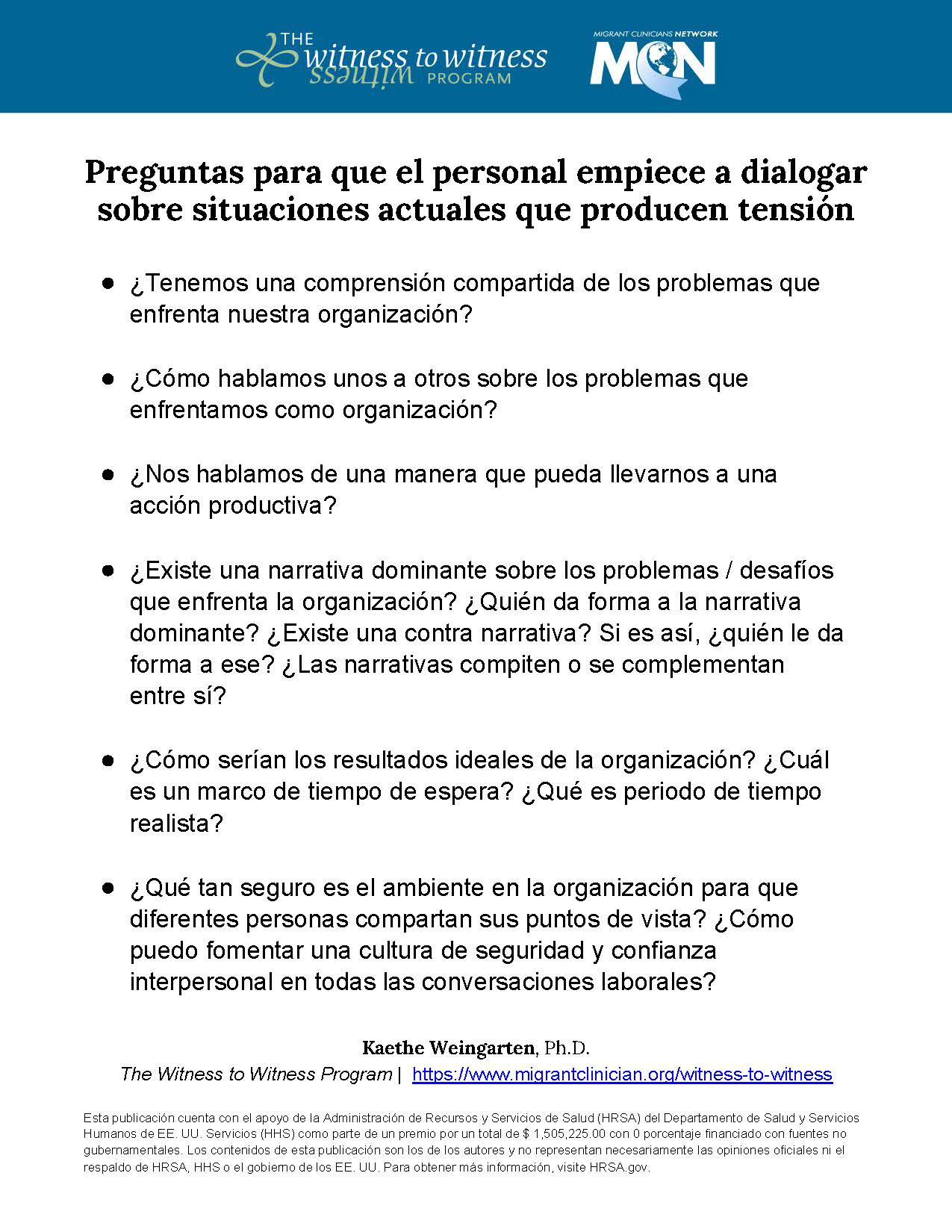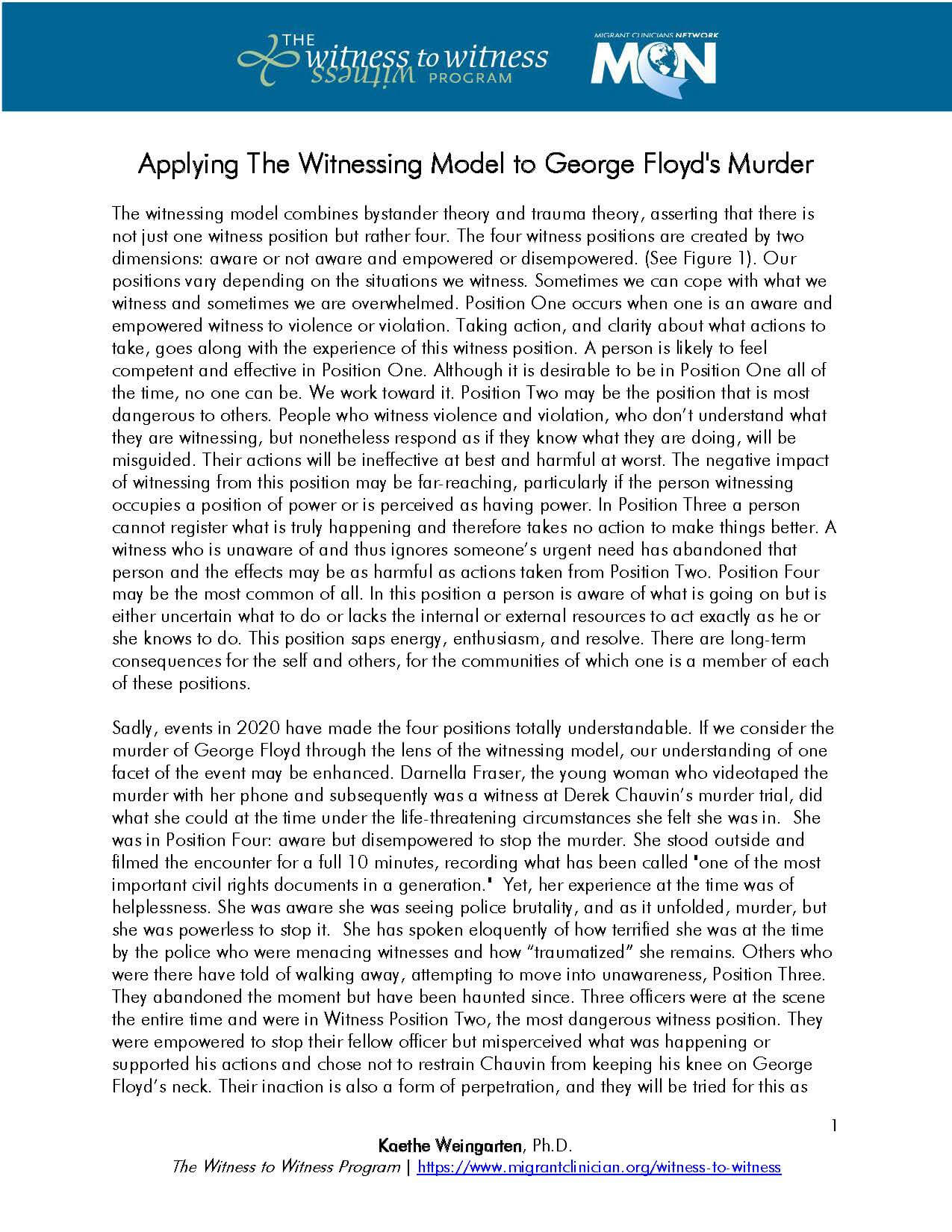
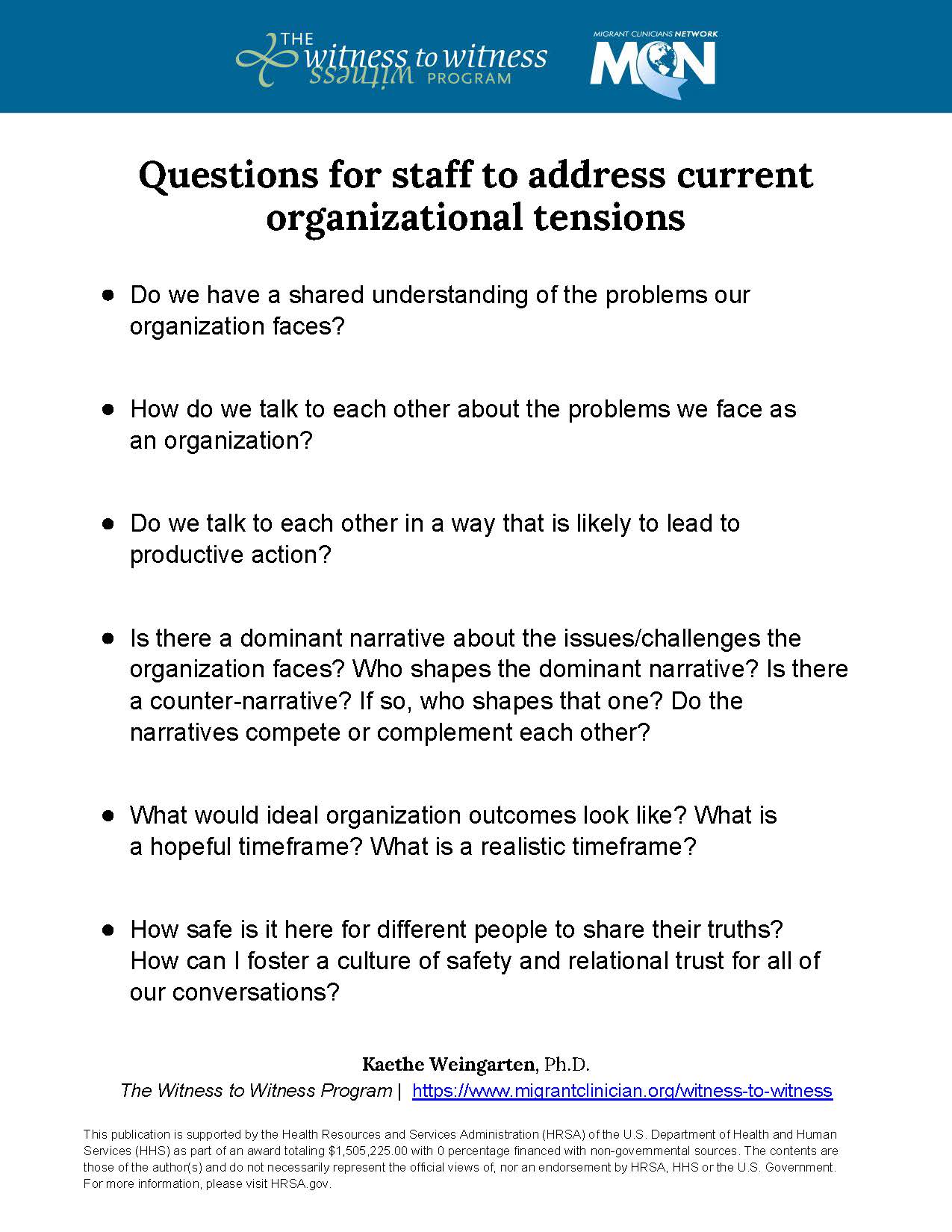
This publication was supported by the Health Resources and Services Administration (HRSA) of the U.S. Department of Health and Human Services (HHS) as part of an award totaling $ 1,310,460 with 0 percentage financed with non-governmental sources. The contents are those of the author(s) and do not necessarily represent the official views of, nor an endorsement, by HRSA, HHS, or the U.S. Government. For more information, please visit HRSA.gov.
- 2022-4-28_Questions-for-Staff-to-Address-Current-Organizational-Tensions_Handout.pdf (132.17 KB)
- 20D466~1.PDF (127.83 KB)
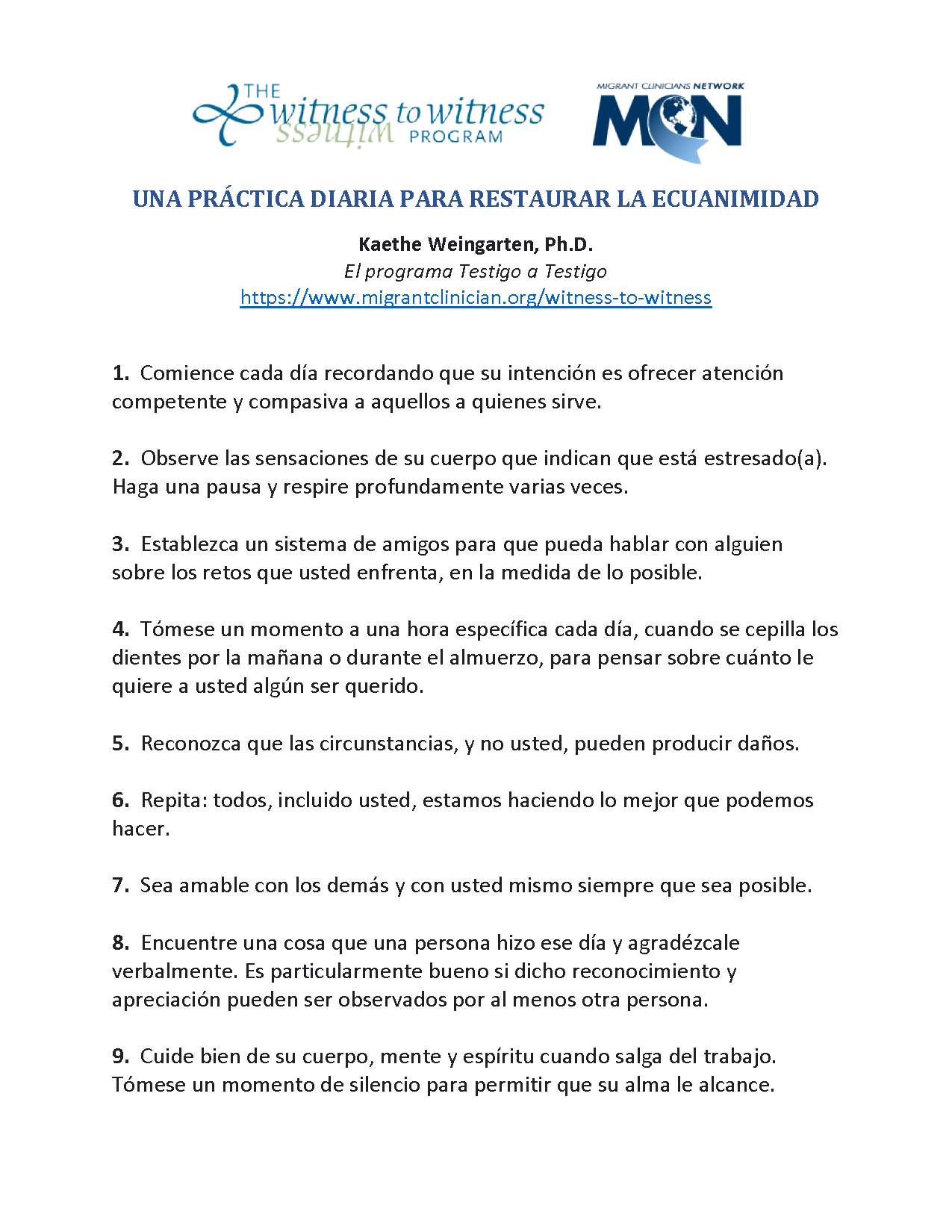

This publication was supported by the Health Resources and Services Administration (HRSA) of the U.S. Department of Health and Human Services (HHS) as part of an award totaling $ 1,310,460 with 0 percentage financed with non-governmental sources. The contents are those of the author(s) and do not necessarily represent the official views of, nor an endorsement, by HRSA, HHS, or the U.S. Government. For more information, please visit HRSA.gov.
- 2022-4-28_Questions-for-Staff-to-Address-Current-Organizational-Tensions_Handout.pdf (132.17 KB)
- 20D466~1.PDF (127.83 KB)
This is a resource dedicated to researching educational opportunities within public health to help make the decision to get your degree, go back to get your degree, or further your education with a master's or doctoral degree in public health. With over 150 schools and over 2,000 public health degrees in this database, this is a comprehensive resource for you to utilize when figuring out which public health program is best for you.
The nation’s largest public health organizations are well known for making careers in public health more accessible by offering scholarships, fellowships, and grants that defray the cost of earning an undergraduate or graduate degree in public health:
- US Department of Health and Human Services – Health Resources and Services Administration
- American Public Health Association
What is not as well known is that there are literally dozens of scholarships available to students of public health available through state schools, private universities, professional associations, and private donors.
Not only do these organizations offer a full range of scholarship programs – from full tuition to a little extra cash – these scholarships are also less competitive than more widely known programs available at the national level. The catch is that it can be a challenge finding a less competitive program that you’re eligible for.
PublicHealthCareerEDU.org has made it a little easier for you to find the funding you need to earn a degree in public health. We’ve put together a list of our favorite scholarship programs available to undergrads and graduate students – and to make it even easier to find a scholarship that you’re eligible for, we’ve organized the list by state.
One of the most crucial components of any public health campaign is communicating time-sensitive information to people in areas affected by public health threats. Since most public health concerns are local or regional in nature, the responsibility for getting information out to the public in a timely manner falls to state and municipal health departments.
From consumer product recalls and food safety warnings, to the latest information on infectious disease outbreaks and vaccinations, state and local health department websites serve as the best resources available for getting the information you need to keep you and your family out of harm’s way.
Whether you’re a healthcare professional looking to isolate the source of a food borne illness or a concerned parent looking to keep your child’s vaccinations current, your state and local health departments will provide you with the latest information on how to keep your family and your community healthy and safe.
National Health Service Corps released the 2015 Application and Program Guidance for the HHSC Scholarship Program. The application cycle will close on May 7, 2015, at 7:30 p.m. ET."The NHSC Scholarship Program awards scholarship to health professions students who want to pursue their passion and work as a primary care provider without the burden of overwhelming debt."
The Maine Health Program is recruiting for a new year-round, full-time position as part of our Outreach Team. The Northeast Regional Coordinator (N/E RC), based in Milbridge. Please see jon description.
An updated online guide to careers in public health. The guide includes comprehensive details, career prospects, and more.
Public Health Online includes expert-driven data and information about careers in the field, online learning options, and how students can gain valuable professional experience even before graduation. Some key features include:
- An in-depth look at public health issues and the importance of public health education
- A detailed examination of high-quality, available online public health degrees and specializations
- Tips for choosing a high-quality, affordable online program that meets the student’s education and career goal
- A public health career fit quiz
http://www.publichealthonline.org/degree-programs/masters/
This 1-page worksheet is an important tool for site to utilize during the Plan-Do-Study-Act (PDSA) cycle to test the impact and utility of changes being implemented.
- PDSAWorksheetforTestingChanges.doc (52.5 KB)
- PDSAWorksheetforTestingChanges.pdf (10.71 KB)
This proposal will I) provide a profile of the agricultural industry and Farmworkers in Washington State II) propose a theoretical framework to understand farmworker housing accessibility III) describe prior legislative actions to address farmworker housing IV) and propose a set of recommendations to address farmworker housing.
Part 2 of the 6 webinar series: Essential Clinical Issues in Migration Health
DATE RECORDED: April 2, 2014
PRESENTED BY: Hans Dethlefs, MD and Ed Zuroweste, MD
If you have any follow up questions for this webinar, feel free to contact Dr. Ed Zuroweste at kugelzur@migrantclinician.org or 512.579.4540 .
To receive CME* or CNE credit after viewing any of these webinars you must complete the Participant Evaluation associated with each webinar. If you have any questions, contact our Continuing Education Assistant at contedu@migrantclinician.org |
At their best, clinical core measures serve as an important window to examine the impact and quality of care being delivered at health centers. However, without an effective system in place clinical core measures can require a great deal of time and effort without yielding important quality improvement. This session will examine both short and long term strategies health centers can employ to make the best use out of the clinical core measures to improve care for patients. Drs Zuroweste and Dethlefs will examine the building blocks health centers need for an effective quality improvement system. Through a series of case studies, this session will explore the role of clinical leadership, technology and strategies for building a short and long term quality infrastructure that works.
Learning Objectives:
- Identify common pitfalls health centers encounter related to the clinical core measures.
- Discuss strategies for assessing a health center’s current capacity to engage in meaningful quality improvement.
- Through case studies, evaluate different approaches to clinical quality improvement using the clinical core measures.
FURTHER READING |
Approved Uniform Data System (UDS) Changes for Calendar Year 2014 Program Assistance Letter Effective Data Management for the Pursuit of Quality Health Care: OneWorld Health Center. MCN's Streamline. Winter 2014 Issue 1. |
Part 1 of the 6 webinar series: Essential Clinical Issues in Migration Health
DATE RECORDED: March 19, 2014
PRESENTED BY: Deliana Garcia, MA, International Research and Development, Migrant Clinicians Network
To receive CME* or CNE credit after viewing any of these webinars you must do the following:
|
**Note: Due to technical difficulities the first 7 minutes of the presentation are not recorded. Please refer to the pdf of the slides for the content that was covered in those 7 minutes.
Over the last 30 years, considerable attention has been paid in the clinical setting to cultural competency- the ability to mitigate against the effects of the sociocultural differences between clinicians and patients and to take into account how culture affects the symptoms presented or the patients’ attitude about health care. More recently, scholars and clinicians have encouraged those in practice or health professions training to focus not only on the behaviors and beliefs of cultural groups but more importantly to consider the structural determinants, prejudices, injustices and blind spots, the “pathologies of social systems” that affect health outcomes and the stigma experienced by patients. The session will introduce participants to the broad framework of structural competency and the five core structural competencies.
Learning Objectives:
- Identify the structures that shape clinical interactions;
- Discuss the means of developing an extra-clinical language of structure;
- Rearticulate “cultural” formulations in structural terms;
- Explain the process of observing and imagining structural interventions; and
- Describe the concept of structural humility.
FURTHER READING |
Farmer, Paul, Bruce Nizeye, Sara Stulac, Salmaan Keshavjee. 2006. Structural Violence and Clinical Medicine. PLoS Medicine 2006 (3): 1686-1691. Holmes, Seth, Fresh Fruit Broken Bodies, 2013 Messac, Luke, Dan Ciccarone, Jeffrey Draine, Philippe Bourgois. 2013. The good-enough science-and-politics of anthropological collaboration with evidence-based clinical research: Four ethnographic case studies. Social Science & Medicine 99 (2013): 176-186 Quesada, James, Laurie Kain Hart, & Philippe Bourgois. 2011. Structural Vulnerability and Health: Latino Migrant Laborers in the United States. Medical Anthropology, Vol. 30, No. 4: 339- 362 Srivastava, Ranjana. Complicated Lives—Taking the Social History. New England Journal of Medicine 2011 (365): 587-589. Willen, Sarah. 2012. How is Health-Related “Deservingness” Reckoned? Perspectives from Unauthorized Im/migrants in Tel Aviv. Social Science & Medicine 74 (2012): 812-821. |
- StructuralCompetencyFinal.pdf (3.94 MB)
- https://youtu.be/smEPZKr-6gg
- http://www.plosmedicine.org/article/info%3Adoi%2F10.1371%2Fjournal.pmed.0030449
- http://sethmholmes.com/
- http://www.sciencedirect.com/science/article/pii/S0277953613002207
- http://www.haverford.edu/anthropology/faculty/hart/Medical-Anthropology-Structural-Vulnerability-and-Health--Latino-Migrant-Laborers-in-the-United-States.pdf
- http://www.ranjanasrivastava.com/wp-content/uploads/2013/01/Complicated-Lives.pdf
- http://www.sciencedirect.com/science/article/pii/S0277953611003984
Families Talking Together (FTT) is an evidence based program designed to help Latino parents better communicate with their children and teens about healthy relationships, sex, contraceptive use, and preventing pregnancy. Dr. Vincent Guilamo-Ramos, the creator of the program and co-director of the Center for Latino Adolescent and Family Health at New York University’s Silver School of Social work, along with Planned Parenthood Los Angeles and Visión y Compromiso, recently enlisted 25 promotores (community health workers) from three communities in California with high rates of teen pregnancy and high percentages of Latinos in an effort to help Latino parents address teen pregnancy. Over a four-day period, the 25 promotores were trained to deliver the FTT intervention. In the next two months, the promotores will deliver the intervention to 250 families in California. The National Campaign wishes to recognize and thank Dr. Guilamo-Ramos, PPLA, and Visión y Compromiso for their work on this innovative and important project.
The FTT intervention—both the community health worker curriculum and parent materials---are available online, free of charge.
- FTT CHW Curriculum.pdf (2.41 MB)
- http://store.thenationalcampaign.org/site/R?i=iOPIGHCt4_sel75YCj4CNg
- http://store.thenationalcampaign.org/site/R?i=zbpZq567mdRyAhRMqfLBfw
- http://store.thenationalcampaign.org/site/R?i=oFELeuVlpFN4_3HuvAZKVg
- http://store.thenationalcampaign.org/site/R?i=8sPNa0ckhtnq8c2n-KUhDQ
- http://store.thenationalcampaign.org/site/R?i=uejouwu2KrBvV0GyidmHLA
- http://store.thenationalcampaign.org/site/R?i=63niYLc_nPHYmxs-ZRZJHQ
Comprehensive Spanish-language curriculum for individuals interested in training promotores de salud in HIV prevention. The curriculum is based on popular education techniques, and is culturally competent and linguistically sensitive.
Provided by Farmworker Justice
Delineation of Clinical Privileges

